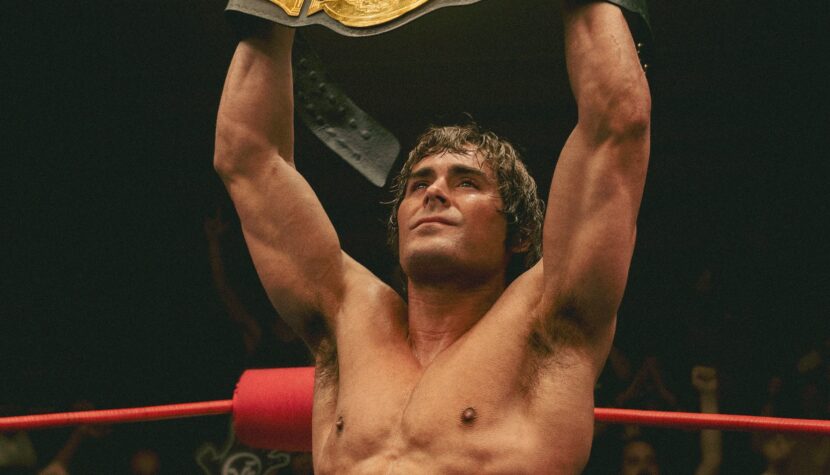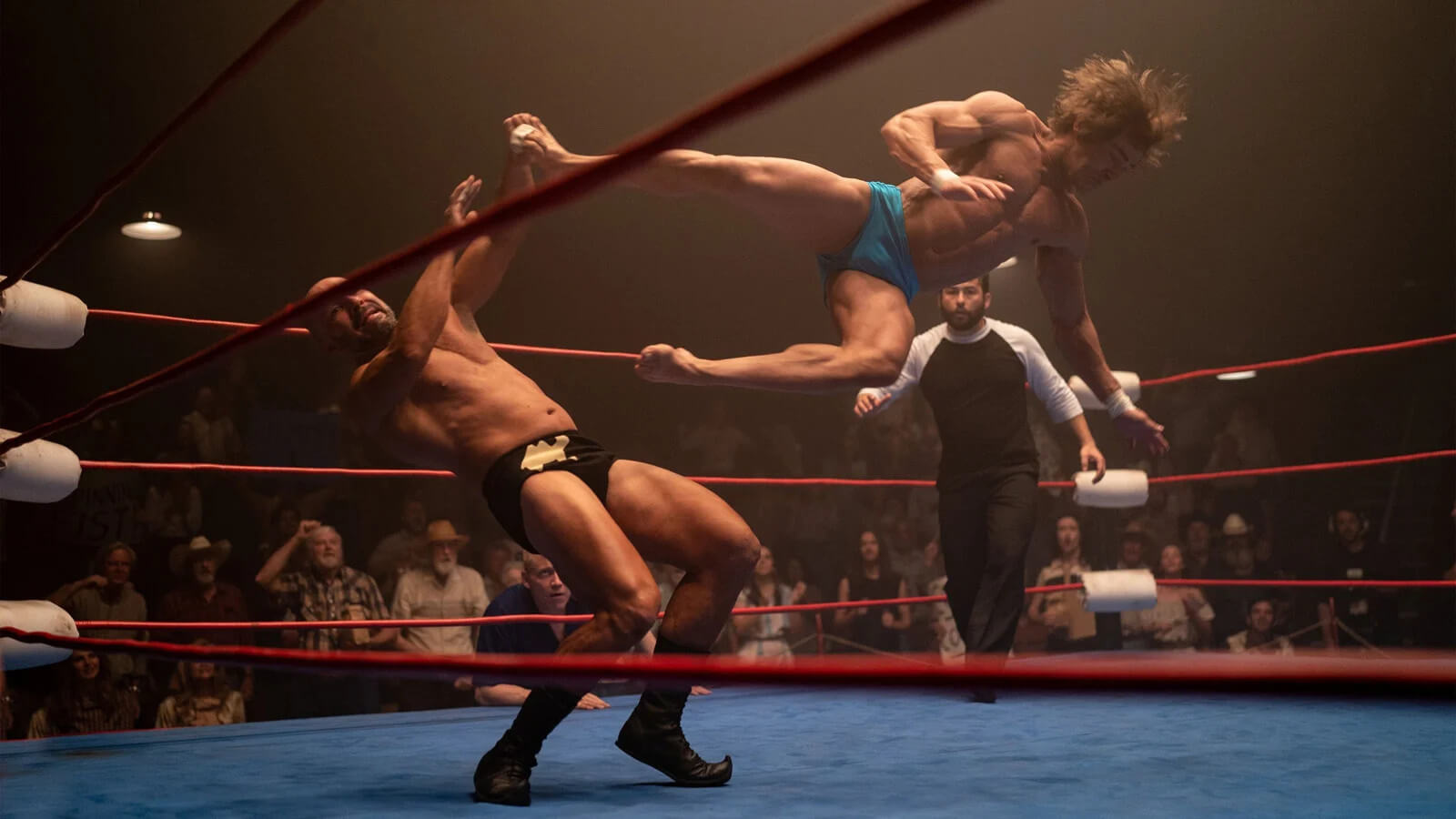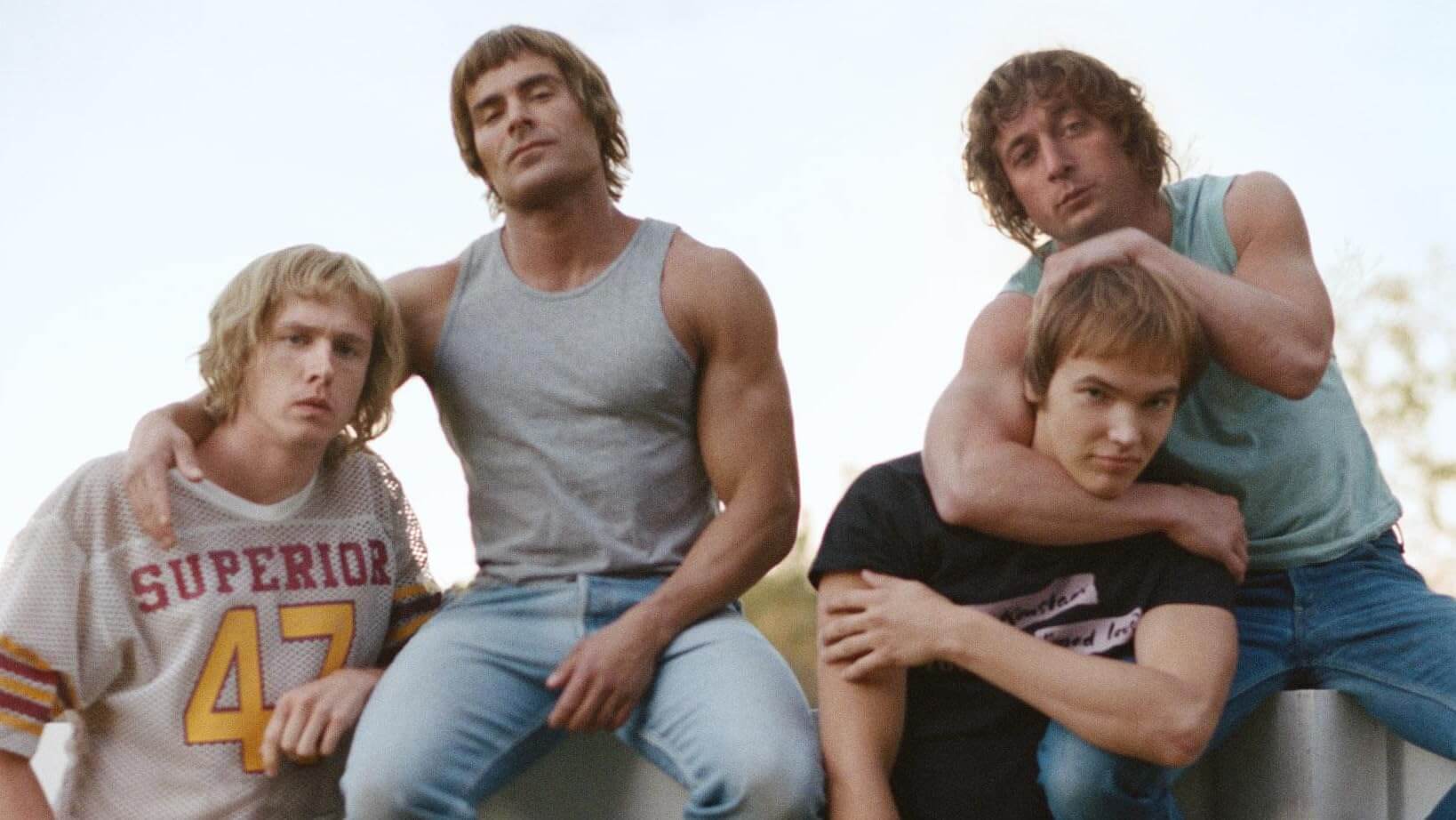THE IRON CLAW. “The Last Family” of America [REVIEW]

I never understood what Americans see in wrestling. How can you get excited about a combat sport where it’s not about a fair fight, but about a staged spectacle for the audience? Where we don’t observe a test of skills, but rather theatrics and clowning around? Wrestling movies – that’s a different story. “The Iron Claw” is a tale of the aberrations of perhaps the most American of sports (certainly: the most “Texan”), vividly depicting the artificiality and brutality of the bloody spectacle. It also peeks behind the scenes, glimpsing wrestlers injecting themselves with harmful substances and managers juggling their wrestlers’ health, and even lives. However, the main theme of the film is not sports pathologies, but family.
The Von Erich family has gone down in history for two reasons. Firstly, due to their contributions to wrestling – in the 70s and 80s, the young Von Erich brothers under the guidance of their father Fritz fought many victorious battles and won various titles, including international ones. Even today, some descendants continue the family traditions and train in wrestling. Secondly, the family allegedly had a curse looming over them, which was said to be responsible for the numerous misfortunes that befell the wrestlers’ clan. Director Sean Durkin started from the valid assumption that when life has already written the best script, there’s no need to excessively tinker with it – just focus on engaging storytelling. If the Von Erich family’s fortunes weren’t true, some viewers would consider the Steel Brothers too improbable and exaggerated. The director himself decided that he couldn’t show all the tragedies that befell his characters on screen because his film would then be too sentimental – for this reason, among others, he completely omits one of the brothers – Chris. Indeed, [SPOILER] a family in which five out of six brothers die tragic deaths, including three committing suicide, may seem cursed [END OF SPOILER].

During the screening, we quickly realize that the misfortunes befalling the family are not due to a curse, but to one specific man. Fritz Von Erich is a father who would shame even Logan Roy with his perfidy. The patriarch treats his sons as a means to an end, namely, the realization of his own unrealized dreams of a wrestling career. He doesn’t care about their health, forcing them back into the ring after serious physical injuries. Without his son’s knowledge or consent, he agrees to throw him onto bare concrete in an important fight, just to create a better spectacle – and afterwards, he blames him for getting up too slowly. He instills fear of the supposed curse hanging over the family. He makes his sons address him as “yes, sir.” He doesn’t appreciate any values beyond physical fitness. He cheats financially, manipulates; openly admits to having a personal ranking of his favorite sons (“but of course, the ranking can always change”).
Therefore, Fritz’s “golden child” is Kerry (Jeremy Allen White), the most accomplished of the siblings, entirely shaped by his father and basing his self-esteem solely on athletic success. David (Harris Dickinson) also enjoys sympathy – he is charismatic, talkative, and media-savvy; Fritz knows he can make money off this boy. Lower in the paternal ranking is the simple-hearted, eldest Kevin (Zac Efron), who, although always trying very hard and completing all tasks, never deserves recognition. Fritz’s scapegoat is Mike (Stanley Simons), lacking in sports aptitude, but he too will be forced into brutal fights in the ring. A cold, emotionally withdrawn, and devotion-seeking mother (Maura Tierney), completely oppressed by her husband and unquestioning of his decisions, observes all these struggles with indifference.
“The Iron Claw” is the biggest loser (alongside “May December“) among this year’s Oscar acting nominations. The entire cast is excellent, although one role stands out in my opinion. Zac Efron, who redefines his entire previous image, deserves an Oscar distinction far more than the bizarre Bradley Cooper in “The Maestro.” Of all the brothers, he is the most touching as Kevin, a lost boy in the body of a powerful man (the actor’s physical transformation is impressive!). The scenes where he chokes back emotions and refrains from crying – because in his father’s opinion, even crying at a loved one’s funeral is shameful – stay with you for a long time. It’s beautiful to see how he slowly matures alongside the tender, supportive Pam (Lily James). This is a role that will certainly be important for many men like him: raised with a firm hand, unable to talk about their feelings, silently suffering, lacking emotional maturity.

“The Iron Claw” – that’s the name of a wrestling hold, popularized precisely by the Von Erich family, involving placing the hand on the opponent’s face and squeezing his temples and forehead with the fingers. We’ll see such a maneuver on screen, but above all, “The Iron Claw” refers to the “iron claw” with which the authoritarian father holds his sons. However, I understand the distributor’s decision to translate the title as “Steel Brothers”; in some ways, it fits the film’s tone better. Why?
It’s not the toxic father who is in the foreground here, but brotherly love, which, despite all the twists and turns of fate, remains unshakable as steel. Despite all of Fritz Von Erich’s manipulations, despite his stoking of competition between his own sons and his open allocation of roles: sometimes the favorite, sometimes the scapegoat, despite his narcissistic forcing of them to fight for his attention – the brothers’ relationships remain strong. Even if Kevin finds it difficult to hide his jealousy when his younger brother David takes away his chance to fight for the coveted title, ultimately he rejoices in his success and offers him full support. Despite a sick upbringing, a cold home, and a lack of good role models: the brothers stick together, care for each other, respect and love each other, defend the weaker ones, and don’t betray the stronger ones. This brotherly love is the most beautiful and genuinely moving aspect of Durkin’s film.

